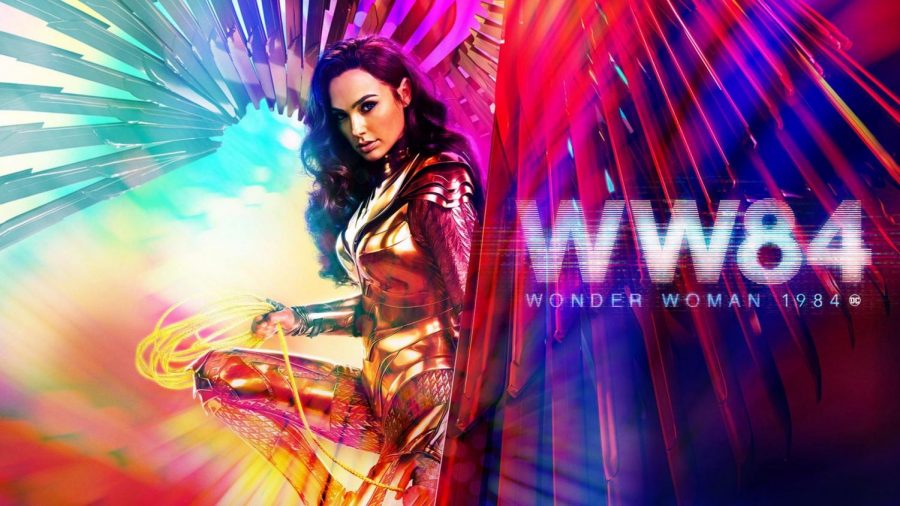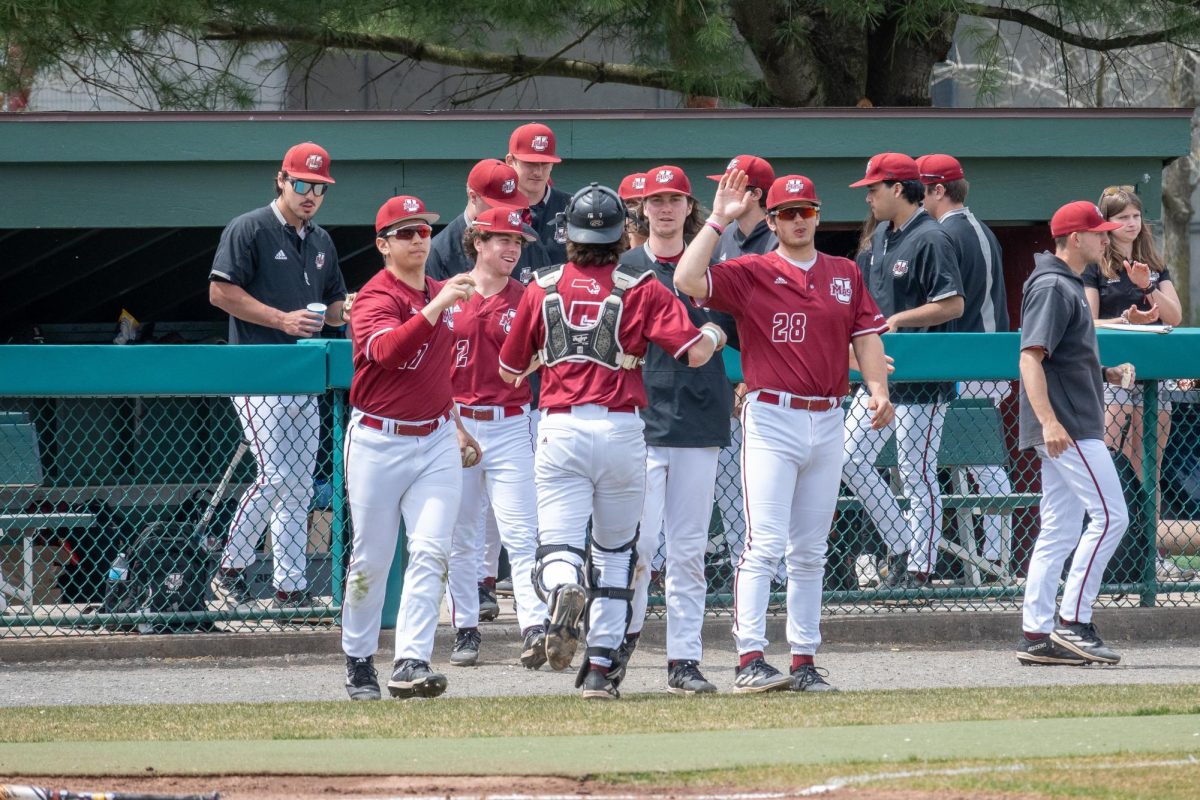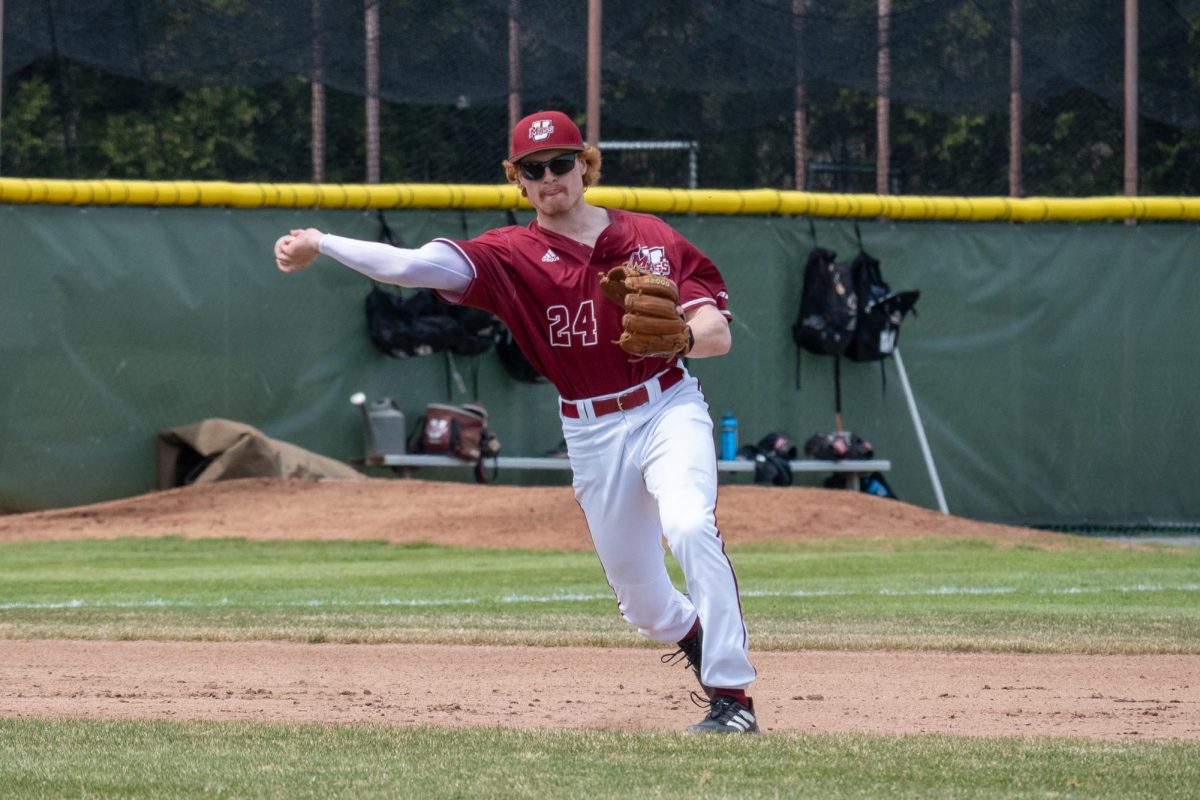Note: This article contains spoilers.
“Wonder Woman 1984,” released on Christmas Day, is the newest “Wonder Woman” film directed by Patty Jenkins. Besides a short prologue, the film takes place in 1984 following World War I — when the first “Wonder Woman” is set — but before the modern-day era of the first “Wonder Woman” film and “Batman v Superman: Dawn of Justice.” However, this sequel differs from the first film quite a bit with its campier and cheesier tone.
The film opens with a scene from Diana’s youth as she competes in a tournament with other Amazons. She finds a shortcut and is about to win, but is stopped by her mentor because she cheated. In 1984, Wonder Woman works as Diana Prince at the Smithsonian where she meets a new coworker, Barbara Ann Minerva. Prince is still mourning the loss of Steve Trevor, her ally and lover, from the previous film. Wonder Woman stops a burglary of black-market artifacts in a mall, and Prince and Minerva find out that one of the artifacts is a stone rumored to grant wishes. Prince then wishes for Trevor to come back, while Minerva wishes to be more like Prince. Businessman Maxwell Lord is also after the stone.
Gal Gadot is once again good as Wonder Woman here, but her character is less interesting and complex. Her main conflict is battling her grief carried over from the first film. In the prior film, her character had more intriguing conflicts. For instance, she was trying to stop the war and find out if Ares was really behind it, while adapting to her new environment. She was challenged on multiple different levels, unlike in this film. Gadot spends more time as Prince in her everyday life in this film, and she is quite good at it. Her conversations early on with her new friend Minerva are the highlight of her performance.
Pedro Pascal as Lord is excellent and gives the best performance of the film. His character is the standard 1980s greedy businessman, combined with the phoniness of an advertising agent. It is a farcical and over-the-top performance, but it works. Comedic portrayals of villains can often make audiences question how the antagonist is ever successful — this does not happen here. The character acts less foolish and more eccentric. It comes off as someone constantly advertising their product. There is no real difference between how Lord acts with others and how he acts during commercials for his company.
Despite the movie’s strengths, the way Trevor is brought back is not well done. His character was well-loved in the first film, and Chris Pine gives a good performance here. In this film, it is Trevor who is trying to adapt to the modern world, when in the previous film it was Wonder Woman trying to adapt to 1910s London. However, the way in which Trevor is brought back is not handled well. Prince wishes for Trevor to come back. Instead of Trevor just appearing out of nowhere and coming back, he possesses another human being. At the end of the film, the person Trevor possessed is shown to have no memory of what happened. The person who was possessed sees Prince, and this was treated as a cute moment.
Kristen Wiig’s performance as Minerva is quite impressive in this sequel. Her friendship with Prince at the beginning of the film is very well done. Her character follows a similar template to Michelle Pfeiffer’s Catwoman and Jim Carrey’s Riddler. She transforms into a famous Wonder Woman villain late in the film. However, this feels rushed, particularly the last part of her transformation. The first half of her transformation makes sense — she wants to be more like Prince. She is surprised when she ends up getting super powers like Prince’s, despite not knowing she is Wonder Woman. The second half of her transformation feels very forced, and would probably seem very strange for someone unfamiliar with the Cheetah character. Minerva is shown throughout wearing leopard and cheetah prints on her clothes. Then, she randomly says she wishes she was even more powerful and was “an apex predator.” Her character arc in the film up to that point didn’t seem to lead to that.
The action scenes throughout the film are disappointing, Wonder Woman never feels challenged in any of them. Besides two fights in the last third of the film, there is no physical threat Wonder Woman faces that can match up to her strength and fighting skill. In one of the first scenes of the film, a store in a mall is robbed by incompetent robbers who are easily defeated by Wonder Woman. The first “Wonder Woman” film was rightfully praised for its “No Man’s Land” scene. None of the fight scenes here feel as tense or exciting as those in the first film.
The film has many scenes with idiosyncrasies that don’t make sense. For instance, Wonder Woman steals a plane from the Smithsonian, which happens to have fuel in it. The audience also finds out that Wonder Woman once learned how to turn something invisible. This was never established before in the film or any of those prior, and this fact is never referenced again in future scenes of the film. Wonder Woman manages to turn the plane invisible, creating her well-known invisible jet, which isn’t used again in the film. The scene plays out as a thrilling escape scene where there is supposed to be tension over whether Wonder Woman will be able to get the plane flying and toward where her and Trevor are going. However, any tension disappears when the characters have the solutions to their obstacles appear out of thin air, without any real effect on the rest of the film.
The score is done by Hans Zimmer, who previously composed “Man of Steel” and “Batman v Superman: Dawn of Justice” along with Junkie XL. There is nothing too memorable here in terms of the soundtrack. The film relied heavily on original music, despite the trailer’s use of 1980s pop music.
“Wonder Woman 1984” can be enjoyable, but a bit predictable. It sadly isn’t as good as the first “Wonder Woman” film with its cheesier tone that may annoy some, but may appeal to others. At the end of the day, it is an average, relatively enjoyable blockbuster.
Scott Lerer can be reached at [email protected].



















